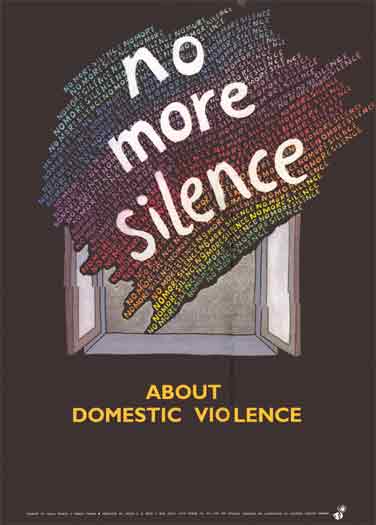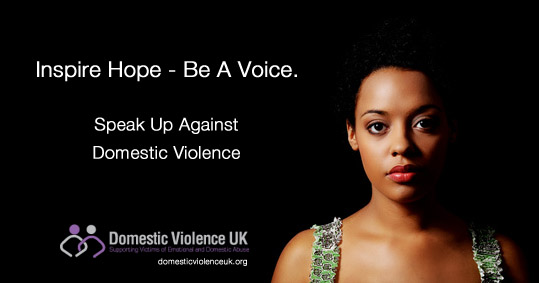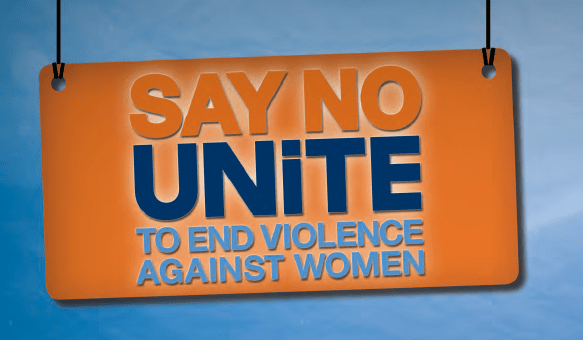
Source: GRIID
Society has long known the power of words. In 1838, Edward Bulwer-Lytton coined the phrase, “the pen is mightier than the sword”, a phrase that has proven its own point by marching its triumphant way down the generations. Books and speeches have been immortalised as turning points in history, ideas that have taken root and changed the world. And as the power of words has been celebrated, the power of silencing has emerged as a crucial tool of the patriarchy, a way of keeping women underfoot. This is why old texts like the bible contain the following lines – “Let your women keep silence in the churches, for it is not permitted unto them to speak” (1 Corinthians 14:34), and “But I suffer not a woman to teach, nor to usurp authority over the man, but to be in silence” (1 Timothy 2:12). It is why many cultures around the world require women to be demure and soft-spoken, speaking infrequently, and why, even in what we think of as the progressive West, outspoken women are regularly labelled ‘shrill’ or ‘hysterical’. It is a pattern cut from the same cloth, a way of ensuring that women’s views are kept hidden away, that we are kept compliant in the face of a system that has always been stacked against us.
Of course, it isn’t only women’s words that are erased. Any man bold enough to speak out against the patriarchial order is mocked for it, called a ‘gender traitor’ or ‘pussywhipped’, sometimes even leading to social exclusion. Given the immense social pressure to go along to get along, it is no wonder many choose to stay silent, no matter how much they may disagree with the rape joke that has just been told, or how much they dislike seeing their friend sexually harass a passing woman. And in this way, by meting out punishment to its critics, the status quo maintains itself.
And when it comes to domestic violence, the silence can be deafening. There is an overwhelming tendency in society to see it as a personal problem between two people, something they should sort out for themselves, and that it isn’t our place to judge the relationships of others. Our judgment centers around the woman in the relationship—we wonder why she doesn’t leave, speculate on her individual character, all the while viewing it as her problem to bear, rather than as a crime plain and simple, committed by the perpetrator. But here’s the key thing. Whenever we portray domestic violence as somehow less bad than random violence against a stranger, we’re furthering the idea that being in a relationship automatically gives a man the right to a woman’s body, and that being with him is tantamount to consenting to be hurt in that way. I feel this is really important, so I’ll say it again: Whenever we think that a woman who just doesn’t leave is responsible for what a man does to her, and that he is less culpable than if he had beaten a stranger, we’re implying that being in a relationship with him is akin to giving consent for whatever he might do to her. In other words, we’re equating a relationship with ownership, and decide that what goes on within it is nothing to do with us.
We need to break this silence, and decry domestic violence as an epidemic that is everybody’s problem. In the aftermath of the Cleveland kidnapping horror, it has emerged that warning signs aplenty were ignored—Castro’s long record of violence against women, neighbours’ calls to police treated lightly, and not followed up on. Could it be that, given that these incidents were taking place in a house, it was seen as ‘just’ domestic violence by the police? A personal relationship problem, and not a ‘real’ crime?
If you follow my blog or regularly read feminist writings, you’ll be familiar with the fact that 1 in 4 women will be a victim of domestic violence in her lifetime. Yet despite this staggering statistic, it is still largely marginalized as a ‘women’s problem’, and virtual silence in the mainstream about it as a pressing social issue. Male celebrities (especially white male celebrities) who have committed domestic violence, like Charlie Sheen, John Lennon, Mel Gibson, and Gary Oldman, have been subject to a ripple of condemnation, before the curtain of silence fell again. And while many brave survivors have spoken out about it, the onus cannot be placed solely on them. Every single one of us has a part to play in breaking the silence that has served to protect perpetrators for so long.

So what does ‘breaking the silence’ entail, exactly? Well, we could start by firmly disagreeing whenever someone makes a joke about violence against women. We could write to our MPs, asking them to make tackling DV a priority, and to increase funding for women’s shelters and other support services. We could volunteer at said services. We could contact companies selling products that promote or trivialize domestic violence and let them know how abhorrent we find it. We could air our views online, take to Twitter, write a blog, post on Facebook. We could challenge those who make excuses for violent men, and publicly refute those who mock or blame the victims. And we (especially the men amongst us) need to be far more vocal in challenging other men, and ask what it is about male culture that continually churns out men who abuse and control women.
None of this is easy. But if we keep turning a blind eye to the rampant problem of domestic violence in society, and insist on seeing it as isolated cases of relationships gone sour, if we excuse celebrity men for their actions and stigmatize the victim instead of the perpetrator, then the culture of male violence against women will continue to flourish in the silence of our complicity.
———-
* If you know a friend or family member who is experiencing domestic violence, please see this guide from Women’s Aid on what you can do to support them.
